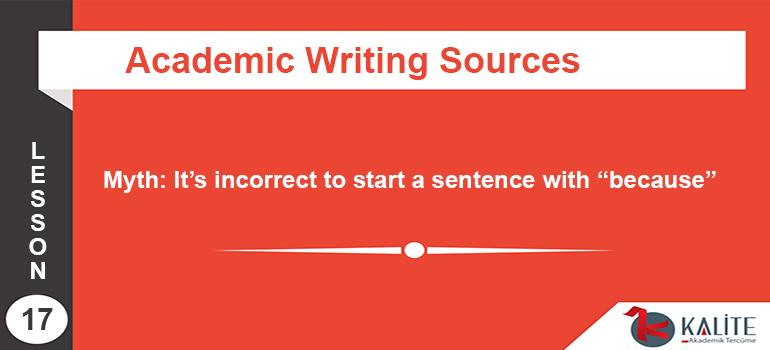
Myth: It’s incorrect to start a sentence with “because”
Another provisional rule, the maxim that no sentence should begin with “because” is likely the result of a teacher’s frustration with sentence fragments.
The following, for example, is a grammatical mistake called a sentence fragment: “Because she told me to leave.”
This is a sentence fragment due to the word “because” being a “subordinating conjunction”—a subordinating conjunction makes the clause it appears in unable to stand on its own as a sentence. In other words, although normally the clause “She told me to leave” can stand alone as a sentence (which is why we call it an independent clause), the addition of the word “because” bars this possibility (replacing the independent clause with what’s called a dependent clause).
To combat the tendency to make sentence fragments with “because” in this way, writing advisors often tell beginning writers never to begin a sentence with “because.”
But no error is necessarily involved in beginning with “because.” Beginning a sentence with “because” is acceptable so long as the because-clause is followed by another clause that completes the sentence.
In other words, the trick with “because,” as with any other subordinating conjunction (e.g.although, since, when, etc.), is to remember that “because” always implies a two-part sentence: a dependent clause must always attach to an independent clause.
Examples:
- Because she told me to leave, I was lonely. (dependent + independent)
- I was lonely because she told me to leave. (independent + dependent)
- Because I was lonely, she told me to leave. (dependent + independent)
- She told me to leave because I was lonely. (independent + dependent)
- Because she told me to leave. (dependent)
- Because I was lonely. (dependent)
- I was lonely. (independent)
- She told me to leave. (independent)
This article is part of Writing myths: The reasons we get bad advice.


